
Dairy is Sustainable
When people think about sustainability, dairy and animal agriculture is usually not their first thought. In fact, many people think that dairy and animal agriculture are one of the largest sources for environmental pollution, but it’s not true. The dairy industry has made some major changes with new knowledge and science.
On our family farm, we use these advancements to improve our farms and lessen our impact on the environment, but as an industry we have done little to show what we are doing on our farms.
**Fewer Cows with More Milk. 9.3 million cows produce 59% more milk than 25.6 million cows that were around in 1944**
**Dairy emissions are less than 3% of the total emissions in California. This includes all the emissions from all stages of production including processing, transportation of dairy products, and wholesale retail impact**
More Milk, Less Cows
In 1944, there were 25.6 million cows in the U.S. compared to 9.3 million cows today that produce more milk than all the cows combined in 1944. So with 16.3 million less cows in the U.S. dairy farms are producing more milk than ever before. In fact, milk production has increased 59% since 1944 despite the number of cows decreasing.
**Cows today are more efficient at converting feed to milk so less feed needs to be used**
Making more milk with fewer cows has made a significant impact on our environment. Fewer cows’ means there are less cows eating and making emissions.
But how can you make more milk with fewer cows. At first glance the numbers don’t seem to make any sense, and seems impossible. But dairies have accomplished the task by the simple implementation of using new technologies on farms to improve efficiencies.
On Our Family Dairy…
**Our Feed Mixer. The feed wagon mixes the various feeds that are specified by our dairy nutritionist to make different feeds for cows at different stages**
**We feed cows corn silage which is fermented cut-up corn. Corn is a great feed source for cows because the cows can digest the entire corn plant. Compared to grazing, corn silage is more friendly to the environment noting there is much more feed produced per acre of land**
Feeding Cows More efficiently
On our dairy, we use a nutritionist to make the different feed rations on our farm. Cows at different stages of milk production have different energy requirements. Cows producing a lot of milk need to eat high energy food in order to stay fit. Likewise, cows that aren’t producing milk need feed that is lower in energy otherwise they will get fat very quickly. It’s all about balancing the cow’s diet to make sure she stays healthy.
Specially formulated feed for our cows not only helps keep our cows healthy, but it also improves the amount of milk a cow can give. Basically by taking care of our cows and ensuring that they get a balanced diet, our cows can do they best job they can do.
**This is one of our balanced dairy cows with great genetics. She combines strength and a tight udder with great milk production and butterfat**
**My sister showing one of our cows with great genetics**
Not to mention that cattle feed (along with other expenses associated with raising cattle) may qualify for a few potentially hefty tax deductions. Since the IRS changes their qualification guidelines every year, I’m not the best expert on what qualifies and what doesn’t. However, there are numerous free tax calculators available online, which is a good place to start.
Breeding a better cow
In addition to feeding cows better, there has been tremendous improvement in genetics. Some cows have better traits, so we breed our cows to the best bulls with these traits in the industry. Cows can even be genomically tested to determine her genetic potential and what the best mating is for that cow. On our dairy we like to breed for a very balanced cow. We like to breed for cows that are very efficient at producing milk using less feed. We breed them to produce milk with higher protein and butterfat, but we also breed for a cow with good strength, tight mammaries, and a long life expectancy. Better genetics have made our cows master milk producers, that stay healthier, and live longer.
We have made many improvements on our dairy and monitor our impact on the environment. We do a lot of environmental testing on crops and waste water to make sure our impact is minimal. Many dairies are putting methane digesters on their dairies to turn waste into electricity or natural gas. The future of dairy is looking quite bright, especially as technology improves and helps us reduce the impact of our cows and farms.
The downside of organic agriculture
When people think about sustainability, People often associate organic agriculture with sustainability. It may be because people confuse the words “green” and “organic” as meaning the same thing, but they don’t.
I am not anti-organic by any means, but want people to understand the difference between organic and modern ways of farming.
The problem with organic agriculture is that organic farming often means eliminating all the technologies (other than genetics) that have developed to make our cows more efficient. An organic dairy farm means that cows must be on pasture and cannot be fed a specially designed feed ration. So organic dairies produce less milk and use more land and other inputs. Organic farming is simply going back to the old ways of farming when my grandpa started our family farm in the 1950s.
If you want to see the impact that organic farming has on the environment, all you need to do is look at the impact that the industry used to have on the industry. Organic farming while seeming “green” is not really sustainable.
Organic farming is not sustainable in the fact that the global population will grow an additional 2.5 billion people by 2050. All these people need to eat, and the world will need more food. The current increases in food production are growing much more slowly than the pace of population growth. Organic farming is going back to a time with reduced production. Looking back at the past, it’s using 16.3 million cows to produce 59% less milk. It’s unsustainable, so hopefully people take notice of these fundamental facts.
Building a Brighter Future
With our family farm, we are hoping to build a brighter future for everyone, and really to make our contribution to society by being responsible dairy people. We work hard on our dairy to reduce our impact on the environment around us, and we do this without much news coverage or attention. I hope that people do start to notice what we are doing on our farm to reduce our impact. I will hopefully be sharing more about what we do on our farm to help make people more aware.
The following is a video that one of our industry organizations put together. You can also download a sweet PDF brochure about what the dairy industry is doing to reduce its environmental impact on the environment
[youtube http://www.youtube.com/watch?v=uwP7g4Z_lEk]

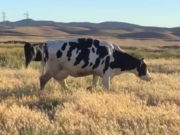
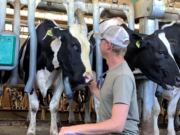
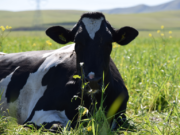
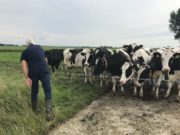
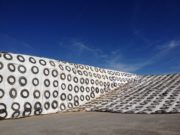
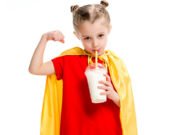
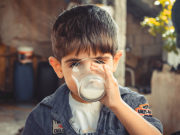
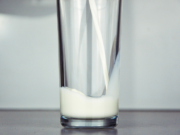
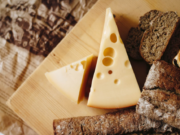
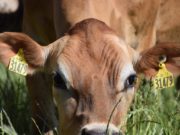
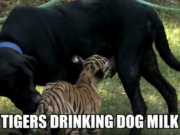
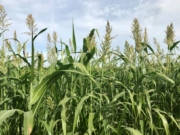
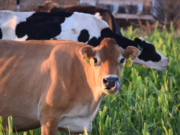
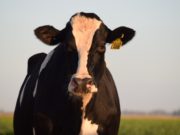
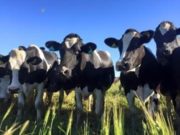
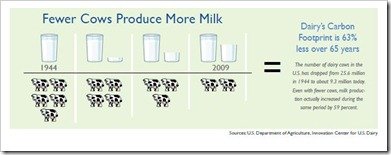
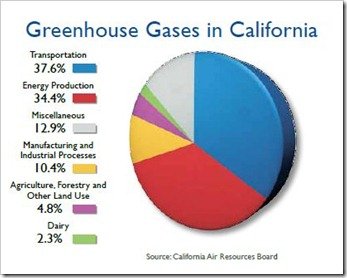
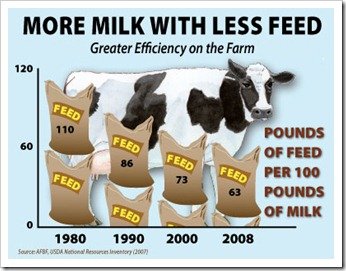
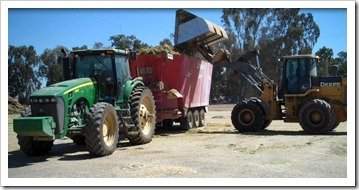
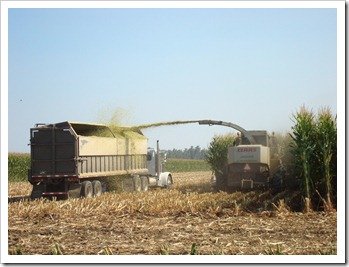
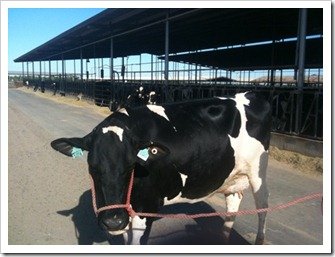
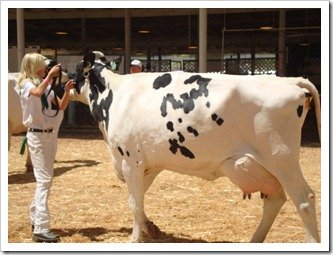




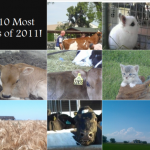
The Westin A Price foundation is an awesome place to learn about organics and farming. Cows nowadays are fed gmo crops, and the soil is ruined with pesticides. I don’t think God ever intended us to use science to create a super-cow. I’ll stick to the simplicities when it comes to my food choices. The food and milk business should not be one big science experiment on animals, humans & the environment.
Hi,
Thanks for commenting, I like great discussion. Thanks for the info, I’ll check it out. Modern agriculture is not a science experiment, but things that make sense like nutrition and breeding. I don’t think God intended us to create “super cows,” but at the same time I don’t think that he wants us to live in the dark ages and not use science. I think there should be a good balance
FYI, the farmer who sells his organic milk and products locally, has a better chance of making it, then the so-called “big guy”.
Yes, at first you may think that.. but surprise, that’s simply not the case! Organic is still a niche market, and still not mainstream. I think what attracts people to organic food production is that people want naturally produced foods without additives and fillers. Food in its natural state always taste better.. Oh wait sometime you need some ranch on those carrot sticks.. When I was in college, I designed some products using the most natural raw sources. It tasted great, so look out for that
I don’t eat ranch or ketchup or sugar or gluten and the list goes on. I have had a dietary revolution. Based solely on learning about what’s truly in the un-organic/un-natural ingredients in them and seeing sick people on a daily basis. That will change anyone, believe it or not. I create my own natural substitutes too.
Can you please do a blog on the Monsanto corporation & how they have helped agriculture?
I’m writing a research paper on breast paper and do you know what the biggest pre-cursor to the disease is….? Take a guess.
I’ve been thinking alot about your post & have thought of some things are simply unsustainable:
1. Our debt based banking/economic system. Ron Paul is absolutely correct.
2. Conventional agriculture or “rape the plant” model. Monsanto chemicals pollute the farms, rivers, streams, oceans, soils and cause deadly health problems.
3. Go watch the documentary called Dirt.
4. GMO crops. & don’t even get me started on the health risks those impose on the environment/humuns.
Most of these topics don’t apply to this posting, but great thoughts though. Here’s my response:
1- Totally agree that the way our country is being run is unsustainable. I don’t think debt is bad though, can be great for a truly capitalistic economy. We don’t want to go back to the days of the gold standard. Some inflation is good..
2- Agriculture is not raping the land. Farmers are very responsible and want to do the best job possible to preserve the health of their land. Their very livelihoods depend on it… Think about it
3- In the words of my college soils teacher “It’s called soil.. Not dirt!”
4- I think GMOs may be a topic for a different posting. They haven’t been proven to be harmful, so we will leave it at that
Well, you like Bernanke so this arguement is pointless. I am in favor of returning to a sound currency.
I have thought about it, and i will hold my position. I cannot say why because then i would give away the answer to a different question i asked you.
Dirt or soil, it’s completely depleted of nutrients, hence why the food you eat and you think its healthy is actually not nutritious at all.
I know that’s what you think because you haven’t done enough research. Which is why you should do a blog on them so then you’ll have to dig into the REAL facts.
The resistance: I assume that you’ve done your research on how farmers farm, so you should know that if the soil is depleted of nutrients, it will not grow ANYTHING. I would love to know your source on on that statement. I have a challenge for you: plant a garden, raise some animals for meat and milk, and let me know how that works for you. Farmers are some of the hardest working individuals out there, and yes, it is a business, which is why they take care of their income source, which is, yes, you’ve guessed it, their soil. Please, please understand that if they don’t take care of their land and produce a quality product, its not a viable business.
To Anja:
Actually, I made that statement coming from a health perspective. Here in the US alone, individuals have a reduced capacity to fight off disease due to weakened immune system caused by an overload of chemicals in the body accompanied by a lack of nutrients. Soil must have a biology or a viable eco-system. Spraying the soil with chemical fertilizers depletes the soil of the good bacteria needed to sustain life for good soil biology to exist.
My family grows a very large garden and yes it does produce well. However, we look beyond just the plant and what it produces, as we are able to measure the nutrient content of all of our produce. It is pretty amazing actually.
My parents own a farm, cows, the whole shebang. I’m not food stupid, I’m a nursing student fascinated in the relationship between soil, food grown, food consumed and how it absolutely affects your overall health & wellness.
Some really interesting points you have written. Aided me a lot, just what I was looking for : D.
My website is about [url=http://www.depressionsymptomsmedication.com]Depression and anxiety[/url].